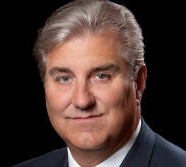
State: Ntl.
Wickert: Nationwide 'Made Whole' War Being Waged on Subrogation: [2023-01-19]
Until recently, the made whole doctrine had not been applied outside the context of a bankruptcy proceeding in Connecticut. However, the Connecticut Supreme Court has given us a clue as to how it will treat this issue in the future.

Gary L. Wickert
It has ruled that while a right of true contractual subrogation may be provided for in a contract, the exercise of that right will have its basis in general principles in equity, rather than in contract, which will be treated as merely a declaration of the principles of law already existing.
However, the discussion in Wasko v. Manella regarding the made whole doctrine was considered dicta and wasn’t binding. In 2013, however, the Connecticut Supreme Court broadly adopted the equitable made whole doctrine for the first time.
Nonetheless, Connecticut case law intimates that the made whole doctrine can be overridden by contract terms in a plan or policy, and the courts will allow these contract terms to override the application of this equitable doctrine.
In an action for reimbursement of money paid out on policy of collision insurance, the court held that the insurer had the burden of proving that the judgment recovered by the insured included compensation for property damage and that, as a result, the insurer was entitled to recover, either on unjust enrichment theory or on theory that insured had violated his contract by refusing to cooperate with the insurer in effecting recovery.
In 2011, the 2nd Circuit Court of Appeals, interpreting Connecticut law, held that boilerplate subrogation language in a policy does not displace the made whole doctrine in Connecticut. That court stated that an insurer’s right of equitable subrogation is subject to the doctrine, which provides that the insurer may enforce its subrogation rights only after the insured has been fully compensated for all of its loss.
When insurance coverage compensates a policyholder for less than the full loss, the insurer must first use any recovery from a third party to compensate the policyholder for the remainder of its loss before keeping anything for itself. On certified question from the Court of Appeals, the Connecticut Supreme Court, in a footnote, clarified that the made whole doctrine is merely the default rule and that parties are free to provide differently in their insurance contract, provided they do so expressly.
A 2022 Superior Court decision has confirmed that there is no such thing as “wrongful subrogation” stemming from a subrogation demand made prior to a determination that the insured has been made whole. In Davis v. Adeoye, Erin Davis was in an accident with Christine Adeoye and filed suit against Adeoye. While Davis’ insurer, Liberty Mutual, had paid repair costs for Davis’ vehicle, the lawsuit also claimed diminution in value to her vehicle; loss of use thereof; out-of-pocket expenses; inconvenience; lost time; loss of life’s enjoyment; and annoyance.
The lawsuit also named Liberty Mutual, alleging “wrongful subrogation” by Liberty for making a property subrogation recover from Adeoye’s liability carrier. The court rejected any notion that Connecticut recognized a tort for “negligent subrogation,” acknowledging that the made whole doctrine does not prevent an auto insurer that has paid for repairs under a policy from pursuing its subrogation rights until after the plaintiff has fully recovered from the tortfeasors.
Rather, the court indicated that the made whole doctrine merely stands for the proposition that an insured enjoys a priority of recovery in a scenario where the total amount of damages awarded is insufficient to satisfy both an insured’s claim and an insurer’s subrogation claim.
A second Superior Court decision in 2022 involved an insured’s attempt to sue a subrogated Nationwide Mutual Insurance Co. after it pursued and recovered a collision subrogation claim against the tortfeasor.
In Orlando v. Liburd, the insured (Orlando) sued Nationwide for unjust enrichment and common law indemnity, claiming that Nationwide pursued its subrogation rights without regard to whether the insured was made whole. The court ruled that these claims were not ripe for adjudication.
The plaintiff alleges that “[i]f defendant Liburd should be held liable to pay damages to the plaintiff,” then Nationwide should be liable for some or all of the amounts paid to it by Liburd’s insurer. As pleaded, the plaintiff’s claim against Nationwide was contingent on the outcome of his claim against Liburd and, perhaps, on whether any judgment against Liburd could be satisfied; so, the court struck both counts against Nationwide. However, this case is illustrative of the nationwide made whole offensive against subrogation.
Gary Wickert is a partner with the Matthiesen, Wickert & Lehrer law firm in Hartford, Wisconsin. This blog post is reprinted with permission.